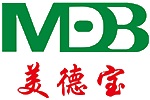-
-
Company Profile
-
Waterproof breathable membrane
Vapor barrier film
Barrier film
Reflective insulation film
Innovative Applications of PVC Waterproofing Membranes in Construction
Release time:
2025-04-14
Innovative Applications of PVC Waterproofing Membranes in Construction
Table of Contents
- 1. Introduction to PVC Waterproofing Membranes
- 2. Importance of Waterproofing in Construction
- 3. Overview of PVC Materials
- 4. Benefits of PVC Waterproofing Membranes
- 5. Innovative Applications in Construction
- 5.1 Roofing Systems
- 5.2 Basement Waterproofing
- 5.3 Bridge and Infrastructure Protection
- 5.4 Rooftop Gardens and Green Roofs
- 6. Sustainability Aspects of PVC Waterproofing
- 7. Installation Techniques for PVC Membranes
- 8. Frequently Asked Questions
- 9. Conclusion
1. Introduction to PVC Waterproofing Membranes
In the evolving world of construction, ensuring the longevity and durability of structures is paramount. One of the most significant innovations in this regard is the **use of PVC waterproofing membranes**. These membranes serve as a crucial barrier against water infiltration, protecting buildings from potential damage. As we delve deeper into the myriad applications and advantages of PVC membranes, it becomes clear why they are becoming a preferred choice among construction professionals.
2. Importance of Waterproofing in Construction
Waterproofing plays an essential role in construction, particularly in regions prone to heavy rainfall or flooding. It safeguards the integrity of structures, preventing **deterioration** and costly repairs. The significance of effective waterproofing can be summarized as follows:
- **Structural Integrity**: Water can weaken the structural components of a building. Waterproofing helps maintain the integrity of the foundation and walls.
- **Mold and Mildew Prevention**: Excess moisture can lead to the growth of mold and mildew, posing health hazards to occupants.
- **Energy Efficiency**: Proper waterproofing enhances energy efficiency by reducing heating and cooling costs, as it prevents water from seeping into thermal insulation.
3. Overview of PVC Materials
**Polyvinyl Chloride (PVC)** is a widely used thermoplastic polymer, known for its versatility and durability. In the context of waterproofing, PVC membranes are manufactured to be lightweight, flexible, and resistant to physical and chemical damage. Key characteristics of PVC include:
- **Flexibility**: This allows for easy installation on various surfaces and shapes.
- **Durability**: PVC membranes exhibit outstanding resistance to weathering, UV radiation, and extreme temperatures.
- **Chemical Resistance**: They are resistant to many chemicals, making them ideal for industrial applications.
4. Benefits of PVC Waterproofing Membranes
The adoption of PVC waterproofing membranes offers several advantages when compared to traditional waterproofing methods. Here are some of the main benefits:
- **Cost-Effectiveness**: PVC membranes are relatively inexpensive to produce and install, providing an economical solution for large-scale projects.
- **Ease of Installation**: Their lightweight nature facilitates quick and easy installation, reducing labor costs and time on-site.
- **Longevity**: With a lifespan often exceeding 20 years, PVC membranes provide a long-term waterproofing solution.
- **Environmental Impact**: PVC can be recycled, making it a more sustainable option in the construction industry.
5. Innovative Applications in Construction
PVC waterproofing membranes are not just functional; they are also versatile. Below, we explore some innovative applications in construction that highlight their effectiveness.
5.1 Roofing Systems
One of the most common applications of PVC membranes is in roofing systems. Their lightweight design and superior waterproofing capabilities make them ideal for both commercial and residential roofing applications. Installing PVC roofing membranes can lead to:
- **Enhanced Energy Efficiency**: Many PVC membranes are reflective, reducing the heat absorbed by the building and lowering cooling costs.
- **Resistance to Punctures and Tears**: The durability of PVC membranes means they are less likely to suffer damage from environmental factors.
5.2 Basement Waterproofing
Basements are particularly vulnerable to water infiltration, which can lead to structural issues and mold growth. PVC waterproofing membranes offer an effective solution for basement waterproofing by providing a seamless barrier against moisture. Advantages include:
- **Seamless Installation**: PVC membranes can be installed without seams, minimizing points of potential water entry.
- **Protection Against Hydrostatic Pressure**: PVC membranes can withstand hydrostatic pressure, which is critical for basements below ground level.
5.3 Bridge and Infrastructure Protection
The durability and chemical resistance of PVC membranes make them suitable for protecting bridges and other infrastructures. They can be used in:
- **Bridge Deck Waterproofing**: This prevents water from penetrating the bridge deck, thereby extending the lifespan of structural elements.
- **Corrosion Prevention**: PVC membranes protect against corrosive substances that can be present in de-icing materials and industrial environments.
5.4 Rooftop Gardens and Green Roofs
The use of PVC waterproofing membranes is also gaining popularity in the development of rooftop gardens and green roofs. These applications require robust waterproofing to support plant life while protecting the underlying structure. Benefits include:
- **Moisture Control**: PVC membranes provide an effective barrier against water, ensuring the health of the vegetation above.
- **Root Resistance**: Specialized PVC membranes can resist root penetration, preventing damage from plant growth.
6. Sustainability Aspects of PVC Waterproofing
As construction increasingly shifts towards sustainable practices, PVC waterproofing membranes align with these goals. Their longevity reduces the need for frequent replacements, thus minimizing waste. Furthermore, many manufacturers are focusing on producing **eco-friendly PVC** through responsible sourcing and recycling initiatives.
- **Recyclability**: After their useful life, PVC membranes can be recycled into new products, reducing landfill waste.
- **Energy Efficiency**: The installation of reflective PVC membranes contributes to energy savings, thereby lowering carbon footprints associated with HVAC operations.
7. Installation Techniques for PVC Membranes
Proper installation is crucial for maximizing the effectiveness of PVC waterproofing membranes. The following techniques are commonly used:
- **Adhered Systems**: These involve bonding the membrane directly to the substrate using adhesives. This method is particularly effective for vertical applications.
- **Mechanically Fastened Systems**: In this method, the membrane is secured to the substrate using mechanical fasteners. This is suitable for roofs subjected to high wind uplift.
- **Ballasted Systems**: Here, the membrane is laid out and held in place with ballast materials, such as gravel or pavers. This method is often used in green roofs.
Each of these installation techniques requires skilled labor to ensure a watertight seal and optimal performance of the membrane.
8. Frequently Asked Questions
What are PVC waterproofing membranes made of?
PVC waterproofing membranes are primarily made from polyvinyl chloride, a thermoplastic polymer known for its flexibility, durability, and resistance to chemicals.
How long do PVC waterproofing membranes last?
With proper installation and maintenance, PVC waterproofing membranes can last more than 20 years, providing a long-term solution for water protection.
Can PVC membranes be used in extreme weather conditions?
Yes, PVC membranes are designed to withstand extreme temperatures and weather conditions, making them suitable for various climates.
Are PVC membranes environmentally friendly?
PVC can be recycled, and many manufacturers are now focusing on producing eco-friendly options, making them a sustainable choice in construction.
How do I maintain PVC waterproofing membranes?
Maintenance typically includes regular inspections for punctures, tears, and other signs of wear, as well as cleaning to remove debris that may affect the membrane's performance.
9. Conclusion
In conclusion, PVC waterproofing membranes represent a significant advancement in construction technology, offering innovative solutions for a range of applications. Their durability, cost-effectiveness, and commitment to sustainability make them an ideal choice for architects, builders, and property owners. As we continue to embrace modern materials and practices in construction, PVC membranes will undoubtedly play a pivotal role in ensuring the longevity and resilience of our structures. Whether you're looking to enhance a building's waterproofing capabilities or pursue sustainable practices in your projects, PVC membranes are a forward-thinking solution worth considering.Next article
Previous article
Next article
recommend News
Newest Pvc Waterproofing Membrane
2025-03-27
Sell one
Kelly Ho
15133606577
kelly.ho@tjmeidebao.com
Sales two
All- All
- Product Management
- News
- Introduction
- Enterprise outlets
- FAQ
- Enterprise Video
- Enterprise Atlas
Sweep the attention to us

COOKIES
Our website uses cookies and similar technologies to personalize the advertising shown to you and to help you get the best experience on our website. For more information, see our Privacy & Cookie Policy
COOKIES
Our website uses cookies and similar technologies to personalize the advertising shown to you and to help you get the best experience on our website. For more information, see our Privacy & Cookie Policy
These cookies are necessary for basic functions such as payment. Standard cookies cannot be turned off and do not store any of your information.
These cookies collect information, such as how many people are using our site or which pages are popular, to help us improve the customer experience. Turning these cookies off will mean we can't collect information to improve your experience.
These cookies enable the website to provide enhanced functionality and personalization. They may be set by us or by third-party providers whose services we have added to our pages. If you do not allow these cookies, some or all of these services may not function properly.
These cookies help us understand what you are interested in so that we can show you relevant advertising on other websites. Turning these cookies off will mean we are unable to show you any personalized advertising.
Copyright: Tianjin Medabao Technology Co., Ltd.
Business License
-


